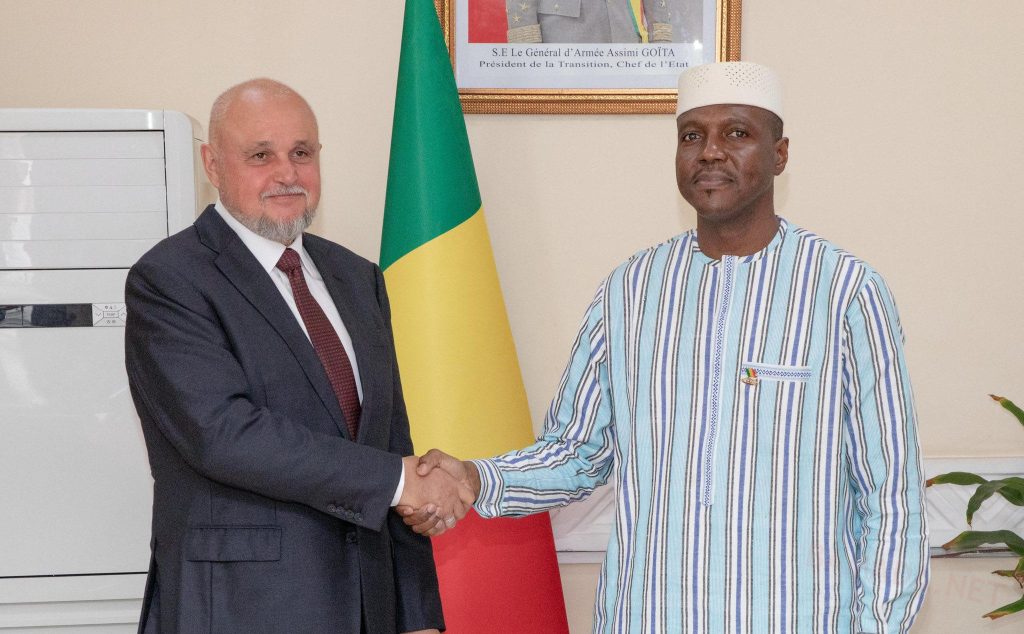
Mali and Russia have entered a new chapter in their bilateral relationship as the Joint Intergovernmental Commission between the two nations convened in Bamako this Tuesday.
The high-level Russian delegation, led by Energy Minister Sergey Tsivilev, was received by Mali’s Prime Minister, Major General Abdoulaye Maïga, alongside key Malian ministers who form part of the commission.
This newly formed body comes just a month after Malian transitional President General Assimi Goïta’s official visit to Russian President Vladimir Putin.
The commission’s purpose is to translate the commitments made during that presidential summit into concrete actions across multiple sectors.
Following a series of sessions that formalized seven sub-commissions, the delegation met with the Prime Minister to report on progress made in socio-economic collaboration—particularly in the energy sector, which remains a top priority for both governments.
“The sessions have been conducted in line with the strategic priorities shared by our two Heads of State,” said Prime Minister Maïga.
He congratulated the commission on its effective proceedings and expressed “the Malian people’s deep appreciation to the Russian Federation”, highlighting the strong and growing partnership that now spans not only defense but also economic and social development.
“We must now focus on the implementation of large-scale projects, combining our resources efficiently,” he added, offering words of encouragement to both delegations.
This strengthened cooperation underlines Mali’s pivot toward new strategic alliances. According to officials, Russia also intends to use the Mali model as a reference point for similar initiatives within the Alliance of Sahel States (AES), signaling broader ambitions for regional influence.
The commission’s creation marks a significant milestone in Mali-Russia relations, reinforcing Moscow’s deepening role in West Africa amid shifting global dynamics.



